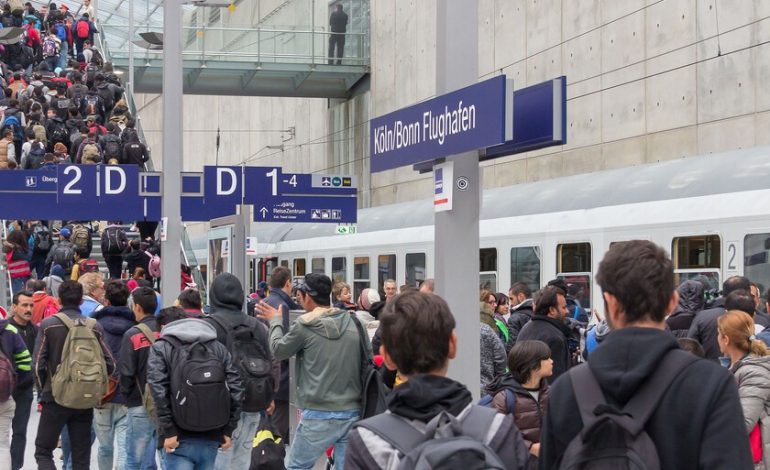

We live on myths and stories that many times do not fit reality. For example, Germany has long touched together with an external perception where its citizens are very working, even more than the rest of Europe (although the data says something else). Also that they are the nation of sausages, beer and legendary punctuality of their trains. And either.
The collapse of a myth. Yes, for decades, Germany cultivated the image of a country where rail punctuality was as part of national identity as beer or sausages. Today that image It cracks: Only 56% of long -distance trains arrive within the official margin of six minutes, a remarkable fall compared to 85% of the nineties.
The situation has become so serious that Switzerland He has vetoed The passage of German trains beyond Basel, fed up with the delays that affect their own network. Cases like that of a damaged train near Vienna that left 400 passengers trapped For six hours in a tunnelor the closure For nine months From the Berlin-Hamburg line for repairs, they reflect The collapse of a system punished for three decades of infinance.
Between wear and frustration. The railway company acknowledges that 80% of the delays are due to An obsolete infrastructureprone to failures and overloaded, which forces drastic solutions and a expensive modernization. For passengers, experience has become everyday calvary: endless waiting, crowded trains and lost connections that alter both professional and personal life.
Travelers such as banker Michael Prieggen or retired Gerald Vogel summarizes it In the Washington Post Non -Rodeos: reliability is already the exception, and the network is in a state of «disaster.» In stations such as wuppertal or bonn, delays accumulate and complaints become a indignation choir that expresses a crisis of trust in one of the symbols of German efficiency.
Investment promises. Solutions? Given this scenario, the government has allocated record figures: 25,000 million dollars in 2025 and more than 116,000 million until 2029, with part of the funds from A historical package Investment in infrastructure and climate that is a change of course in German fiscal discipline.
Transport Minister Patrick Schnieder has described punctual levels as «unacceptable» and has promised substantial improvements to reach 75-80% of specific trains in 2027. However, experts and user associations They warn that the hole created for thirty years of abandonment will not be solved in a few years and that the network still requires greater injections of capital and structural reforms.
National identity. Plus: The German rail crisis is not just a mobility problem. As we said, it touches sensitive fibers of the national identity. In a country where precision and reliability are considered collective virtues, see how the rail system collapses or even It compares With other nations, it results deeply humiliating. That the Swiss (referents in rail efficiency) distrust of German trains is an even greater symbolic blow.
If you want, the debate transcends the technical and reflects a broader anxiety about Germany’s ability to maintain the prestige of its economic and social model. Delays and breakdowns, repeated daily, not only hinder trips, but They erode trust in the nation that was once synonymous with mechanical punctuality.
Europe Heat. It is the last of the legs to analyze. The current state of Deutsche Bahn It is both an operational crisis and a more than possible mirror of the European dilemmas: infrastructure that age, insufficient investment and a growing tension between national expectations and economic realities.
It is not just that the old continent is not prepared for a war due to its ways, is that Germany, once of rail modernityhas become an ad for navigators. The nation is trapped between the memory of its past perfection and the urgency of reconstructing a system that has stopped complying with the Germanic Puntalidad ideal.
In that gap, not only the credibility of a company is played, but part of the country’s own identity, with Europe at the bottom of the frame.
Image | Raimond Spekking
In | The myth says that Germans work more than the Spaniards. The data tell a different thing
In | Germany has tried the four -day week and is clear about its verdict: 73% of companies will not return to five



